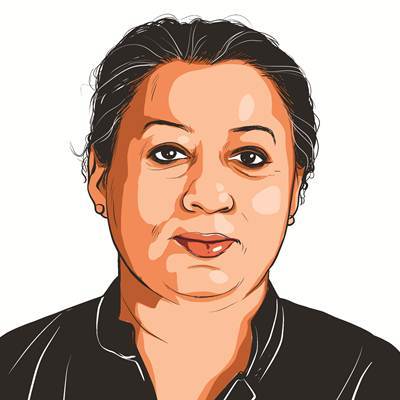Ritu Sarin is Executive Editor (News and Investigations) at The Indian Express group. Her areas of specialisation include internal security, money laundering and corruption. Sarin is one of India’s most renowned reporters and has a career in journalism of over four decades. She is a member of the International Consortium of Investigative Journalists (ICIJ) since 1999 and since early 2023, a member of its Board of Directors. She has also been a founder member of the ICIJ Network Committee (INC). She has, to begin with, alone, and later led teams which have worked on ICIJ’s Offshore Leaks, Swiss Leaks, the Pulitzer Prize winning Panama Papers, Paradise Papers, Implant Files, Fincen Files, Pandora Papers, the Uber Files and Deforestation Inc. She has conducted investigative journalism workshops and addressed investigative journalism conferences with a specialisation on collaborative journalism in several countries. ... Read More
Don’t tie PSUs to Govt apron strings: CVC
Chief Vigilance Commissioner P Shanker has spoken. And although the Government can seek solace in his statement that he didn’t name any...

Chief Vigilance Commissioner P Shanker has spoken. And although the Government can seek solace in his statement that he didn’t name any
Minister to the Prime Minister—Ministers who are said to be harassing their PSU chiefs—that could be of little comfort.
For, his lay-off message to the political establishment couldn’t be clearer: please get out of PSUs, let them have a ‘‘corporate regime,’’ rather than a ‘‘conventional vigilance set-up.’’
Speaking to The Sunday Express in an exclusive interview, Shankar has admitted he did the raise the issue with the PM. ‘‘I didn’t mention any names but I gave the Prime Minister several instances of the type of insecurity and the kind of delays that are taking place.’’
‘‘The idea,’’ Shanker said, ‘‘is for the PSUs to be managed by their Boards rather than be tied to the apron strings of Ministries.’’
Asked which Ministry and who in the Ministry was behind the latest controversy, Shanker spread the net wider.
It’s the ‘‘entire hierarchy’’ of the controlling Ministry which matters, he said. ‘‘It is not only the Minister but also the Secretary, even the Joint Secretary of a Ministry who could be putting the PSU official on tenterhooks. We cannot have a situation when top officials in banks and PSUs do not act independently or take commercial decisions because motives will be attributed to him.’’
Shankar said that as of now,there are a ‘‘few hundred’’ pending vigilance cases involving PSU officials and, sometimes, the complaints he received were either ill-informed. ‘‘These complaints hang like a Damocles Sword on PSU officials which is not good,’’ he said.
Shankar said that over and above the Committee of Secretaries—set up by Cabinet Secretary Kamal Pande—he had appointed Arvind Pande, former Steel Authority of India chairman to ‘‘study the issue and make recommendations on how a corporate governance regime’’ can be introduced in PSUs. Pandey, he said, was expected to submit his report to the CVC in three months.
Elaborating on steps he took, Shankar said that since he had completed a year in office and several complaints had been routed to the CVC, he had first written a lengthy letter to the PM.
This was followed up with a meeting with the PM which the Cabinet Secretary also attended. ‘‘The Prime Minister was receptive to the ideas generated. The fact that some PSU chiefs and even Ministers have been blaming us for delays and inaction is adding insult to injury. The CVC should not be used as an alibi for non-performance,’’ he said.
Shankar, who has earlier been Secretary, Ministries of Petroleum and Heavy Industries, said the idea was to empower the PSU board to remove fear and misgiving on vigilance cases. ‘‘If we are making a case for an efficient public sector, we have to give them a level field and empower their Boards’’ he said. ‘‘And vigilance should be introduced as a management function supervised by the CVC rather than an external system administered by me.’’
Photos


- 01
- 02
- 03
- 04
- 05






























